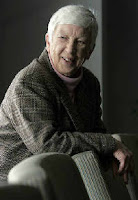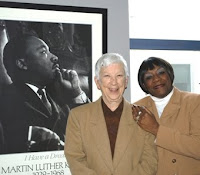The Meaning of "Nurse" -- Part 2
 Rosemary Flanigan
Rosemary Flanigan In the latest Hastings Center REPORT an article by Stephen R. Latham, “Too Few Physicians, or Too Many?” supports a decades-old research finding that “medical need is not the sole (or even the primary) determinant of health care service provision” and concludes that increasing the numbers of allied health professionals is a better method of addressing a shortage of primary care clinicians, rather than expensively educating new M.D.s.
If nurses, for example, are more present, might they wrest some power in health reform decision-making? Or are increased numbers irrelevant in the power structure?
I thought of the role of nurses especially in end-of-life situations. In the same report, an M.D. tells of letting her demented mother who was dying be moved from the nursing home to the hospital for “initial stabilization and assessment” although the accompanying caveats to hospital staff would fill a page.
In the New York Times a daughter (who is the surrogate) remembers that years ago the father had wanted everything possible done in his dying and so she made that decision even though she knew it was not “reasonable.” And it wasn’t: the father never recovered and died six months later. But she wrote, “My role was to support my father. . . .” As if surrogacy is akin to blind obedience!
An empowered nurse--a skilled health provider, sympathetic caregiver, capable interpreter of complicated medical instructions--could have been of immeasurable help—and saved suffering and resources.
Or will emotion win out over reason every time?








